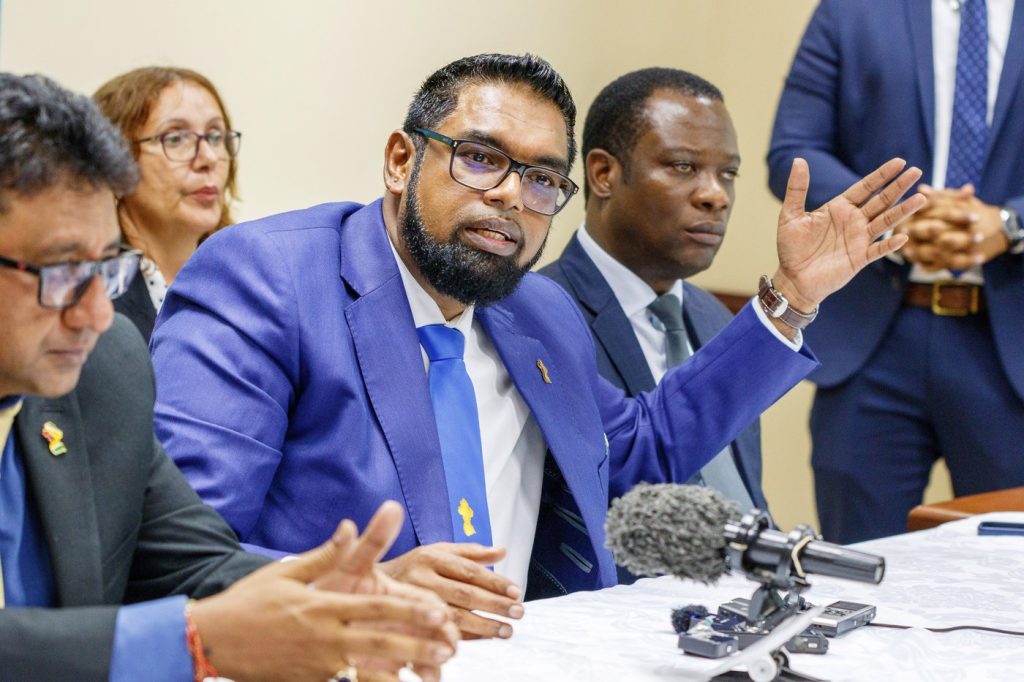GEORGETOWN, Guyana (AP) – On Saturday, Guyana's President, Irfaan Ali, publicly condemned an incursion by an armed Venezuelan naval vessel into disputed waters that are reportedly rich with oil deposits. This particular area is being developed by ExxonMobil, a major player in the global oil industry. In his televised address, President Ali emphasized the seriousness of the situation, stating that Guyana's maritime boundaries are recognized under international law and that any threats to the country's territorial integrity would not be tolerated.
In response to this development, Ali announced that the Guyanese government had promptly notified its international allies, including the U.S. government under the Trump administration. Additionally, Venezuela's ambassador to Guyana was summoned to address the matter officially. The President expressed his grave concern over the incident, emphasizing that it represents a serious challenge to Guyana’s maritime territory.
The U.S. State Department echoed Ali's worries, stating on the social media platform X that "further provocation will result in consequences for the Maduro regime.” This strong statement came shortly after the U.S. tightened sanctions against Venezuelan President Nicolás Maduro’s government, underscoring growing tensions between the two neighboring countries.
The Venezuelan naval vessel's incursion occurred near several large ships utilized for storing oil extracted from three oilfields in the Stabroek Block, which is presently operated by ExxonMobil along with Hess Corp and CNOOC of China. The Stabroek Block is estimated to contain a staggering 11 billion barrels of oil. President Ali reported that various aircraft and marine vessels had been deployed to support the numerous drill ships, seismic vessels, and support ships active in the oil exploration region.
This latest incursion comes merely two weeks after an armed confrontation along the Cuyuni River, where insurgents suspected to be Venezuelan pirates exchanged gunfire with a Guyanese military patrol, resulting in injuries to six soldiers, two of whom were seriously hurt. This pattern of aggressive encounters highlights the escalating strain in relations between the two nations.
Since ExxonMobil's significant oil discovery in Guyana in 2015, the territorial contention between Venezuela and Guyana has intensified. Venezuela has sought to assert its claims over a historic territorial dispute, with ambitions to annex the Essequibo region, which constitutes roughly two-thirds of Guyana's landmass. The conflict over land and maritime borders has a long history, with Venezuela asserting that an 1890s boundaries commission unjustly deprived it of this oil-rich territory. Although the area was under British administration for over a century, it has been under Guyana’s control since 1966, the year when Guyana gained independence from the United Kingdom.
As the situation unfolds, the focus remains on the implications for both Guyana and Venezuela, especially considering the vast oil resources and the international responses to the escalating territorial disputes. The recent actions reflect a longstanding and complex relationship marked by historical grievances and significant geopolitical interests in the region.










